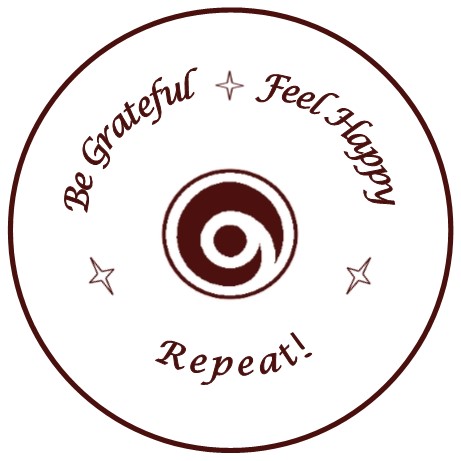Live Each Day with a Grateful Heart: The Science and Spirit Behind The Gratitude Concept
“
Live each day with a grateful heart.”
The Gratitude Concept is built on the belief that when we intentionally pause to recognize what’s good in our lives—even the smallest blessings—we create a powerful shift in our perspective and in our biology. By making gratitude a daily habit, we don’t just feel better—we function better, think more clearly, and connect more deeply with others.
“Live each day with a grateful heart” isn’t just an inspirational slogan—it’s a practical strategy backed by science. When you begin and end each day by noticing even the smallest blessings—a reliable cup of coffee, a kind word from a colleague, or a moment of calm—you’re engaging in a proven gratitude practice that leads to real gains in well-being. Research shows that people who regularly focus on what they appreciate sleep more soundly, experience fewer aches and pains, and report greater resilience in the face of stress. They’re also more creative, productive, and generous in their relationships, because gratitude shifts the brain away from scarcity and worry toward opportunity and connection. By making gratitude a daily habit—whether through journaling, a simple mental checklist, or the ritual of a Gratitude Stone—you train your mind to scan for the positive, unlocking a self-reinforcing cycle of health, happiness, and possibility.
“Live each day with a grateful heart” isn’t just an inspirational slogan—it’s a practical strategy that transforms the way we experience each moment. By beginning and ending your day with a simple ritual—whether that’s jotting down three small blessings, mentally noting what went well, or even pausing to hold a Gratitude Stone—you train your mind to scan for positives rather than pitfalls. This daily focus on appreciation shifts your perspective from frustration and scarcity toward possibility and fulfillment, laying the groundwork for greater resilience, creativity, and motivation.
The power of this practice is more than anecdotal—it’s backed by decades of rigorous research. In landmark studies led by Dr. Robert Emmons, participants who kept a gratitude journal (writing down things they were thankful for each week) reported higher levels of positive emotion, greater optimism, and even better sleep quality compared to peers who recorded neutral or negative experiences. Neuroimaging shows that gratitude lights up brain regions tied to dopamine and serotonin production—our natural mood regulators—so you’re biologically primed to handle stress more effectively and remain open to unexpected opportunities.
Those personal gains ripple outward into our bodies and communities. Work by UC Berkeley’s Greater Good Science Center finds that regular gratitude practices can lower inflammation, improve cardiovascular health, and bolster immune function. Socially, grateful people give more generously, build deeper connections, and inspire reciprocal kindness, creating a virtuous feedback loop of support and generosity. By weaving gratitude into your everyday routine—through journaling, sharing thanks at dinner, or carrying a Gratitude Stone as a tactile reminder—you tap into a science-validated pathway toward health, happiness, and the limitless potential that comes from seeing all the resources already at your fingertips.
“Live each day with a grateful heart” isn’t just an inspirational slogan—it’s a practical strategy grounded in decades of rigorous research. Studies by gratitude experts like Dr. Robert Emmons have shown that people who routinely pause to list or reflect on what they appreciate experience profound shifts in their mental and physical health. In controlled experiments, participants who kept a daily gratitude journal reported higher levels of positive emotion, greater life satisfaction, and even better sleep quality than those who tracked neutral or negative events. Brain imaging research suggests that gratitude activates regions associated with dopamine and serotonin production—our brain’s natural “feel-good” chemicals—making us more resilient to stress and more open to new possibilities.
Beyond mood and mindset, the benefits extend into our bodies and our communities. Researchers at UC Berkeley’s Greater Good Science Center have documented that gratitude practices can lower markers of inflammation, improve cardiovascular health by reducing blood pressure, and bolster immune function so we bounce back more quickly from illness. Socially, grateful individuals tend to give more generously, trust others more readily, and build stronger, more supportive relationships—creating a feedback loop where acts of kindness and appreciation multiply. By weaving simple rituals into your daily routine—whether that’s jotting down three good things each morning, sharing your thanks over dinner, or using a Gratitude Stone as a tactile reminder—you’re tapping into a well-validated, science-backed pathway to greater happiness, health, and limitless potential.

